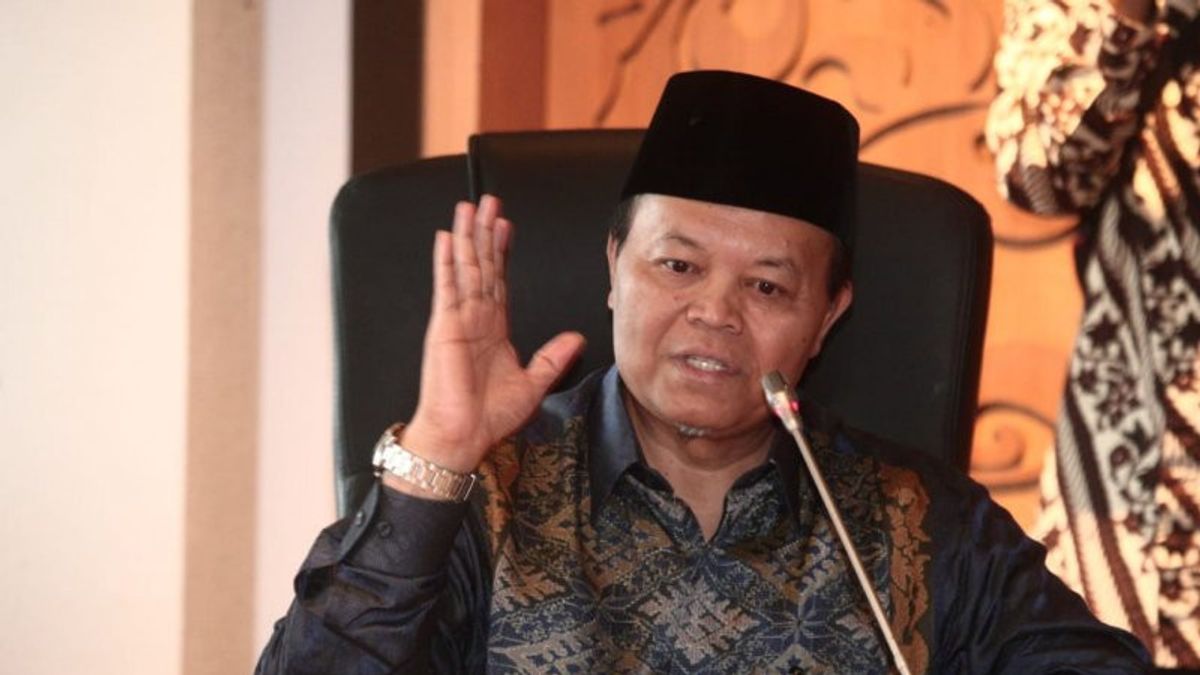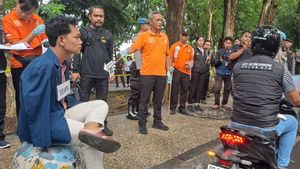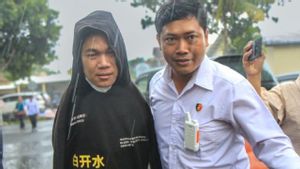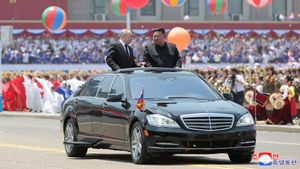JAKARTA - Deputy Chairman of the Indonesian People's Consultative Assembly (MPR RI) Hidayat Nur Wahid emphasized that 4 pillars of the MPR RI were born to continue the role model of the nation's founders. Where, publicly compromise in responding to differences of opinion in the formulation of Pancasila as the basis and ideology of the state in 1945 ago.
The politician who is familiarly called HNW has had at least three compromise phases since Pancasila, a version of Bung Karno's speech on June 1, a June 22 compromise later known as the Jakarta Charter, and August 18, which we now know as the philosophy of life of the nation.
"This is a big lesson that must be learned and imitated by the founding fathers of the nation, especially by educated people such as Ikadim, and by the MPR, the Four Pillars of the MPR RI were born," he said, quoting Antara.
HNW conveyed this when holding the Socialization of the Four Pillars of the MPR RI in front of the Faculty of Management Sciences (Ikadim) of the State University of Jakarta as well as the book review of "MSDM Dalam Perspective Islam" in the Abdul Muis Room of the Indonesian House of Representatives, Nusantara Building, MPR Complex, DPR, Jakarta, Friday.
HNW recalled that this event was held on 9 Ramadan 1444 H or to coincide with 80 Hijri calendar years since the proclamation of Indonesian independence was echoed on 17 August 1945 or 9 Ramadan 1364 H.
Therefore, HNW said that today the Indonesian people are celebrating their 80th year of independence in the Hijri calendar.
"We should be grateful for the gift of independence that God has presented, while continuing to introspect what we have been grateful for and achieved so far," he said.
According to HNW, recording two systems of the proclamation of Indonesian independence is proof of the diversity of the Indonesian nation that has taken place even before the birth of the Indonesian nation of independence.
Furthermore, HNW said how the BPUPKI Session on May 31 to June 1, 1945, which was colored by a speech about Pancasila as the basis and ideology of the state, gave birth to two major axis of ideology, namely nationalism and Islam.
However, the two axes do not necessarily divide and separate each other, instead each of them wants to make compromises so that diversity becomes the singles of Ika.
The compromise was reflected in the fact when Bung Karno proposed a change in the composition of the members of the small committee, which was originally in the form of Committee Eight, six of which came from the national axis and only two from the religious axis.
"Bung Karno showed his statesmanship, turned Committee Eight into Committee Nine by accommodating all groups," said HNW.
HNW said the Committee of Nine contained four representatives of the national axis, namely Soekarno, Mohammad Hatta, Mohammad Yamin, and Achmad Soebardjo accompanied by one representative of the Nasrani nationality, namely AA Maramis.
Then the other four from the uakni Islamic religious axis KH Wahid Hasyim, Abdoel Kahar Moezakir, Abikoesno Tjokrosoejoso, and H. Agus Salim.
"The Nine Group resulted in a compromise on Pancasila on June 22, and was known as the Jakarta Charter," he said.
"Recently, the results of Pancasila's compromise on June 22 have been protested by the people of Eastern Indonesia, who are again responded to by statesmanship," said HNW.
By prioritizing the largest mass, continued HNW, the objection was accepted so that the agreement for the final of Pancasila on August 18, whose first precept reads God Almighty.
Therefore, HNW emphasizes the importance of understanding the Four Pillars of the MPR RI, not only to foster history but also to be able to continue exemplary and the ability to guard and oversee national travel.
"So that if there are irregularities, it can be straightened out. So that if there is a problem, a solution can be found. In order to be able to answer the challenges and opportunities of the times without losing their identity as the nation and state of Indonesia. So that thus the ideals of proclamation and reform can always be fought for and realized," concluded HNW.
The English, Chinese, Japanese, Arabic, and French versions are automatically generated by the AI. So there may still be inaccuracies in translating, please always see Indonesian as our main language. (system supported by DigitalSiber.id)













